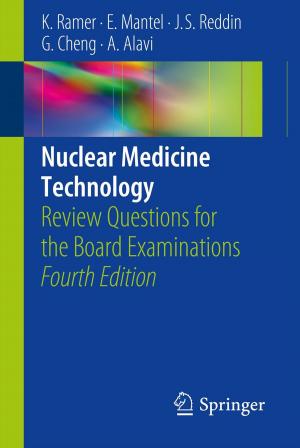ABC of Pediatric Surgical Imaging
Nonfiction, Health & Well Being, Medical, Medical Science, Biochemistry, Surgery| Author: | Angus Alexander, Savvas Andronikou | ISBN: | 9783540893851 |
| Publisher: | Springer Berlin Heidelberg | Publication: | February 5, 2010 |
| Imprint: | Springer | Language: | English |
| Author: | Angus Alexander, Savvas Andronikou |
| ISBN: | 9783540893851 |
| Publisher: | Springer Berlin Heidelberg |
| Publication: | February 5, 2010 |
| Imprint: | Springer |
| Language: | English |
This handbook is intended for doctors working in this ? eld. It belongs to the pocket of a student, house of? cer, resident, medical of? cer or generalist consultant, who will ? rst see the patient. The clinician needs to suspect at least one disease process as a starting point, because the book is ordered alphabetically according to diagnoses. From this point there are both surgical and imaging differential diagnoses listed. These can also be looked at within the book. For the clinician there is a dedicated page to assist with clinical symptoms and signs, alternative diagnoses and urgency of the radiological investigation, based on important information that is needed from imaging. With regard to imaging, there is a list of primary, follow-on and alternative investi- tions appropriate for the suspected diagnosis. There are lists of imaging features with s- porting images, tips and radiological differential diagnoses. The alphabetic organization makes for a jump to the next suspected diagnosis with ease to ? nd something more suitable for the current patient’s needs.
This handbook is intended for doctors working in this ? eld. It belongs to the pocket of a student, house of? cer, resident, medical of? cer or generalist consultant, who will ? rst see the patient. The clinician needs to suspect at least one disease process as a starting point, because the book is ordered alphabetically according to diagnoses. From this point there are both surgical and imaging differential diagnoses listed. These can also be looked at within the book. For the clinician there is a dedicated page to assist with clinical symptoms and signs, alternative diagnoses and urgency of the radiological investigation, based on important information that is needed from imaging. With regard to imaging, there is a list of primary, follow-on and alternative investi- tions appropriate for the suspected diagnosis. There are lists of imaging features with s- porting images, tips and radiological differential diagnoses. The alphabetic organization makes for a jump to the next suspected diagnosis with ease to ? nd something more suitable for the current patient’s needs.















